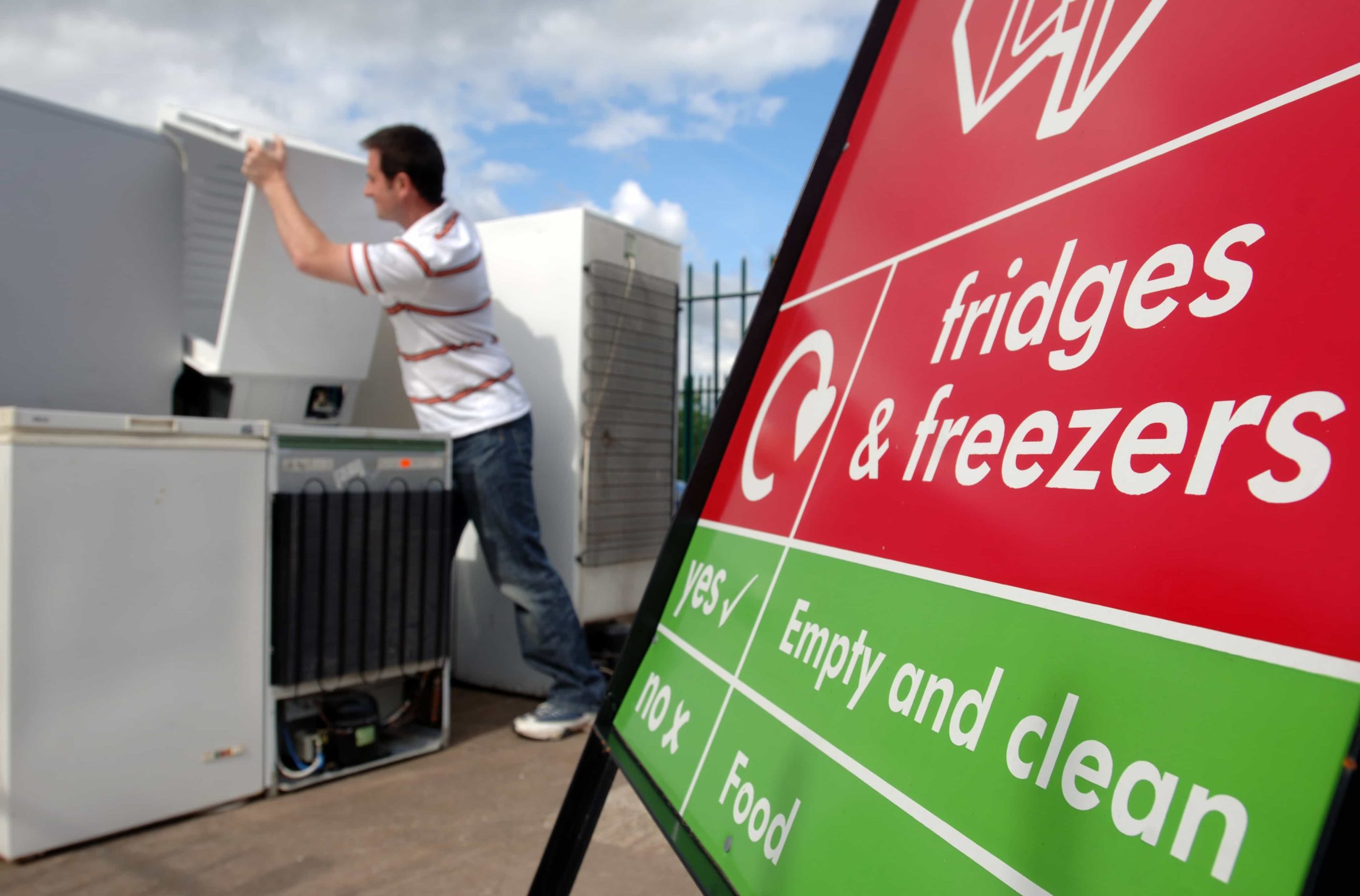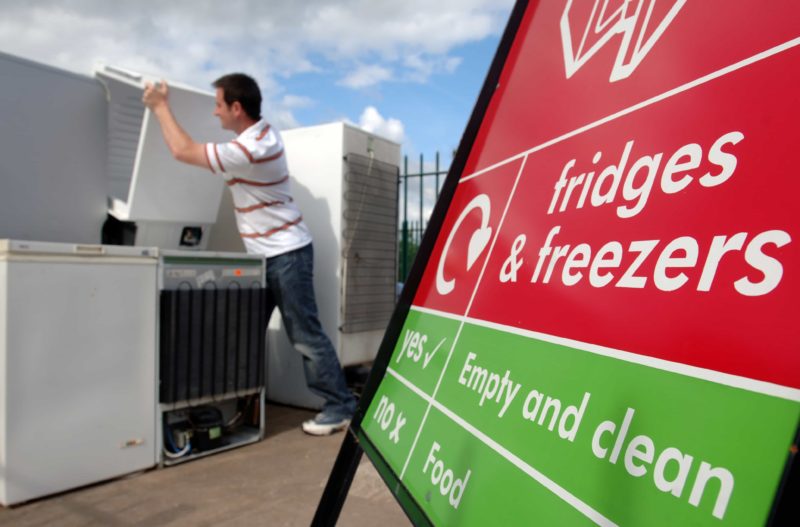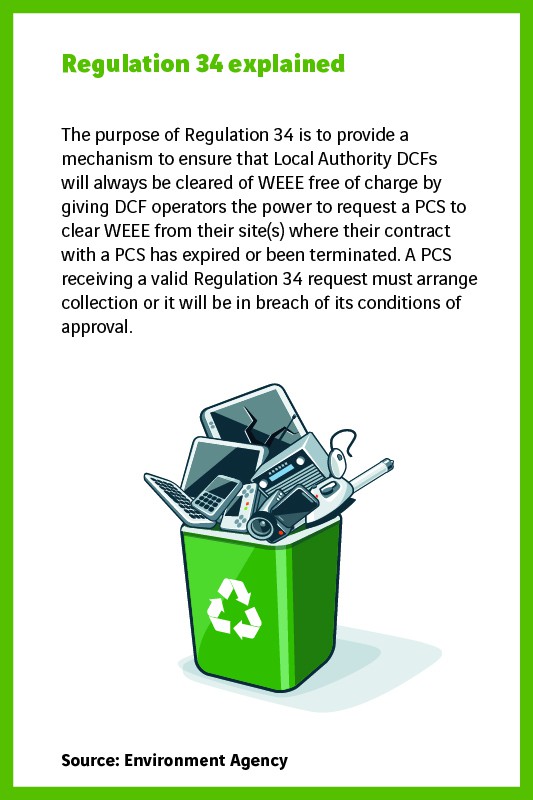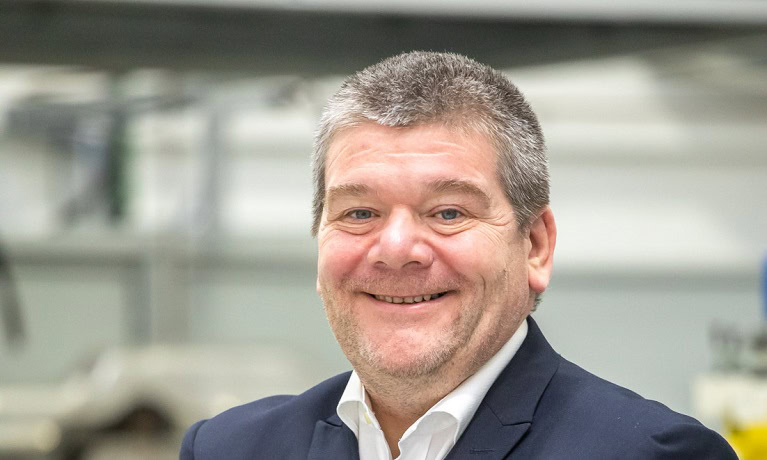As a consequence of the demand change, Bexley council is believed to be the first local authority to use ‘Regulation 34’ under the amended WEEE regulations – it has requested waste management firm Veolia to collect the material. Regulation 34 ultimately forces a WEEE compliance scheme to pick up the material from a council’s sites if the authority has been unable to secure a contract with a scheme to clear the material. It is understood that Veolia had been collecting the material but had told Bexley that it was discontinuing the service.

The move by Bexley hints at a wider shift in the WEEE market which has arisen after changes to the WEEE Regulations, brought into effect in 2014.
Under the regulations councils can offer free access to the WEEE collected at civic amenity sites to producer compliance schemes which have an obligation to collect the material for recycling on behalf of their members.
Changes
Before the changes to the system, compliance schemes could collect a greater proportion of WEEE than they needed to meet their targets and sell the surplus evidence to competing schemes who were looking to make up a shortfall in their collection requirements.
As a result of this, local authority collection contracts were often widely sought after as a guaranteed source of WEEE tonnages. Some schemes would offer ‘added value’ perks to councils to secure the work.
Since the changes to the regulations were brought in at the start of 2014, schemes which are unable to collect enough evidence to meet their members’ obligations no longer have to secure evidence from those with a surplus, and can instead opt to pay a compliance fee to meet the targets.
The compliance fee is essentially a penalty payment made for any shortfall in collections. It also means that broadly speaking, schemes who over collect could be unable to cover their cost of collection and treatment of the material through the sale of evidence as the schemes with a shortfall don’t have to buy the over collected material.
Bexley
This means that some councils may not have a contractor because of the loss of interest in acquiring material and where Regulation 34 can apply. Bexley is understood to be the first authority in the UK to have been through the Regulation 34 process, following the expiration of its WEEE clearance contract with Veolia earlier this month (11 June).
The local authority told letsrecycle.com that it had been unable to re-negotiate a contract with the company, or find an alternative producer compliance scheme willing to clear the site.
The council receives around 1,000 tonnes of WEEE per year, which is collected from its two civic amenity sites at Foots Cray and Thames Road through containers provided free of charge by Veolia.
As the council was unable to secure a contract to clear the sites with a WEEE compliance scheme it submitted a request to the Environment Agency to force Veolia to collect the material from the sites.
Stephen Didsbury, head of waste and street services at Bexley, told letsrecycle.com: “Bexley is in the position of having to issue a Regulation 34 request as our current WEEE compliance scheme does not require our material to meet its targets. All compliance schemes were contacted when we were advised that our current arrangement was to be terminated, to see if they required our material to meet their targets and were unable to find a compliance scheme (or a mixture of compliance schemes) to take all our WEEE.
“We understand the compliance scheme’s position which is due to targets already being achieved. The compliance schemes cannot burden the costs of collecting and arranging for the reprocessing of material on their customers if it’s not required for meeting their targets. So Bexley have been unable to make alternative contractual arrangements for regular WEEE collections from its two sites”
Mr Didsbury also criticised the regulations, claiming that higher collection targets would provide a greater incentive for councils to collect WEEE from local authorities.
“Defra should at the first opportunity revise upwards the targets so the system works so waste authority are not left having to choose to comply with their environment permit or the regulations.”
A spokesperson for Veolia added: “The Veolia WEEE scheme has a strong working relationship with Bexley council. We are working with the council and the Environment Agency to follow the Regulation 34 procedure to ensure the collection request is validated and completed.”
Dynamics
WEEE compliance schemes have told letsrecycle.com that the law changes have shifted the dynamic in the WEEE evidence market, where previously there had been an incentive for schemes to amass collection contracts with councils, where they might seek to gain from selling on surplus evidence.
One scheme operator, who asked not to be named, said: “It used to be a bun fight to get hold of civic amenity site contracts, but now the story is that we are being asked by a lot of schemes if we have an interest – that has never happened before.”
“Defra should at the first opportunity revise upwards the targets so the system works so waste authority are not left having to choose to comply with their environment permit or the regulations.”
Steve Didsbury
London borough of Bexley
Other changes in the market are also likely to have had an impact on the demand for WEEE evidence. In recent months the UK’s largest obligated producer – Samsung – switched from ERP UK to Valpak, leading to an overall reduction in the former’s collection obligation.
Classification
Elsewhere, changes to the classification of ‘dual use’ WEEE – which can be items used in either a household or a business – are also reportedly having an effect on demand for WEEE from CA sites.
Definitions of what can be considered WEEE from households, and WEEE from businesses – and is therefore obligated under collection targets – were changed in late 2014.
Guidance was amended to bring the UK’s WEEE definition in-line with that of the European Commission which states that any WEEE of a similar nature to that presented to householders, regardless of how much is presented, should be classed as household WEEE.
This means that compliance schemes can turn to other sources of WEEE, such as that collected from offices, to meet their collection targets.
In November, some councils had reported that competitive tendering for WEEE from CA sites had reduced since the changes to the Regulations (see letsrecycle.com story).











Subscribe for free